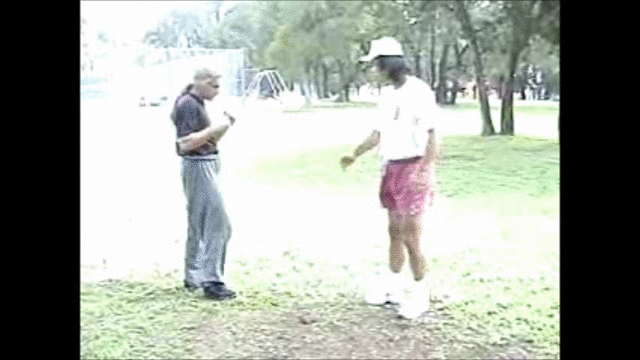skribs
Grandmaster
I agree. Except that in a self defense situation, you are not getting out of a "wrist grab." You are trying to get away from someone determined to control you, who happens to have grabbed your wrist first. Yes, the drill you teach will work, for most people if most other people grab their wrist. But, if you then change the situation, and ask the guy grabbing to keep the person there, start by grabbing the wrist... you get $50 if you can keep the other guy right here for 3 minutes, by any means... then things change. Then they start responding by grabbing the other hand, grabbing the waist, tackling... anything except for "let me hold your wrist while you try to get out." Best counter for someone breaking a wrist grab... immediately grab them again.
In my Hapkido class, I've found it very hard to set up a wristlock offensively, because of how easy it is to break those grips. What I would be teaching would be something that would take minimal training in order to apply, and achieve a basic result of breaking the grip. That gives them a chance to run away or to fight back. A much better chance than if they're stuck in that grip.
If teaching grip breaks isn't ethical, I don't know what is. I don't know what else can be taught as quickly to be used effectively.
Correct. So, what is ethical to teach a beginner for self defense? Upon leaving your class, your student gets assaulted in the parking lot. Should they be trying the palm heel to the chin, that they just learned? Should you as the instructor be making them believe that shot has power, when you know that a beginner does not have power? Note that this goes for any technique, as you point out. There is not a technique that you can teach a beginner in a short seminar, to use for real when his life depends on it.
The same could be said for a self-defense class, then. If you've had your first class (which is usually an hour long) and you get jumped, should you be prepared to defend yourself? You're setting too high a standard of the seminar.

